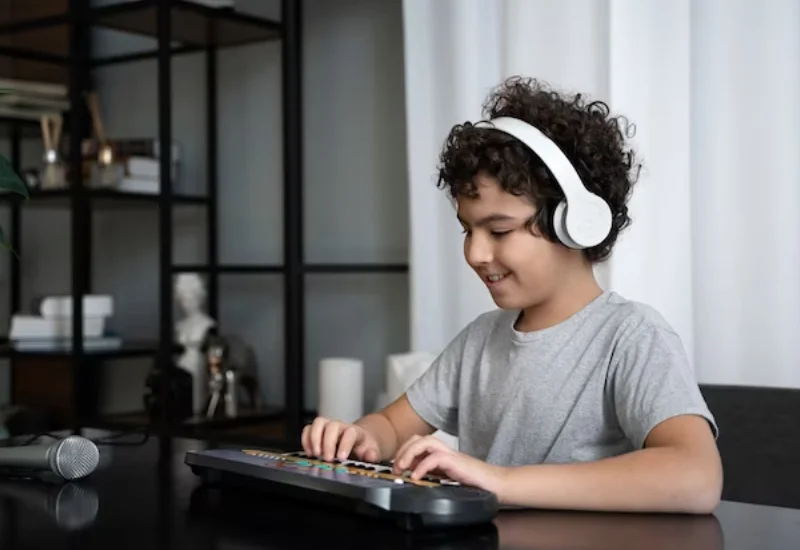How Audiobooks Can Equip Children With the Skills to Learn and Appreciate Music

Music and reading play crucial roles in a child’s development, and building skills for each can help improve the other. A write-up from Magnetic Magazine notes that music education can help foster better academic performance, coordination, brain function, and emotional expression. In turn, these skills help build a capacity for reading. But reading also plays a helpful role in learning music, as improving vocabulary and comprehension through reading can enhance music education. Though physical books have their many benefits, audiobooks are also a great way for children to build the basics to learn music efficiently. The added audio experience of reading can offer new ways to develop your child’s musical skills and expose them to all sorts of literary and musical works. Here’s how audiobooks can equip children with the skills to learn and appreciate music:
Building musical foundations
Some people are skilled enough to learn to play an instrument by ear, but understanding the fundamentals of music is crucial for developing musical skills and appreciation. A post from Get Kids Into Music emphasizes the importance of learning music theory, as it gives your child building blocks to understand music and how it is made. Audiobooks can expose children to musical concepts like rhythm, melody, and harmony in a natural and engaging way. Children can begin to develop an intuitive understanding of these core principles by listening to stories with strong musical elements.
When performing, they can easily understand how to play the music correctly by tapping into the knowledge of these basics. It can also be the foundation for their own musical compositions, as they’ll better grasp how to make music that sounds harmonious and interesting.
Diverse resources
Digital platforms have been instrumental in providing access to a wide range of resources conveniently and efficiently. The benefit of audiobooks is that you can easily find a multitude of them, all on various topics and genres, in one place. Audiobooks on Everand can be accessed with one monthly subscription, offering thousands of titles to choose from. While listening to any genre or subject is beneficial for kids, you can also find music-related titles that are relevant to your child’s instrument or needs. Audiobooks for training like Julia Whitlock’s Ear Training Course for Piano: Intervals or educational books on the basics like Music Theory from the Centre of Excellence are available to listen to on the platform, and can offer great insights and guidance for learning and appreciating music.
Enhanced vocabulary and language skills
Reading is vital for developing language and comprehension in children. Audiobooks often feature rich language and descriptive passages that can help children expand their vocabulary and improve their listening comprehension. It can help them understand certain music terms, how to pronounce them, and what they mean. Improved listening skills and comprehension can allow them to learn music more efficiently, easily picking up cues and insights to learn how to play their instrument better. A wider vocabulary and better listening can benefit them not only in their learning and appreciation of music but also in their overall academic development.
Learning music can be a fun way for kids to engage their brains and senses, but equipping them with the fundamental knowledge and skills to improve their growth can make a major difference in how they play and appreciate music. Audiobooks provide unique and exciting benefits for kids, allowing them to learn whenever and wherever. If you’re just starting out in getting your children to learn music and play an instrument, check out our “The 5 Easiest Instruments To Play” post to ensure that your child finds the right instrument to play and learn so they can get excited about music.
Parents, Teachers & Sheet Music Seekers:
If I offered to provide you hundreds of legit sheet music PDFs for your kids:
- Brand-New & Exclusive Compositions
- Age & Level Appropriate
- With INSTANT Online Access
- Worry-FREE Licensing & Copyright
...would you take me up on that offer?
ABOUT
I started Music4Kids with a simple goal in mind: To provide valuable information to guiding parents who want to raise musically inclined kids.
Click to read on